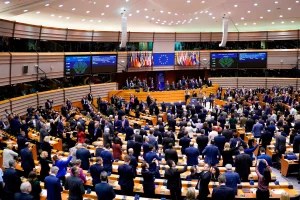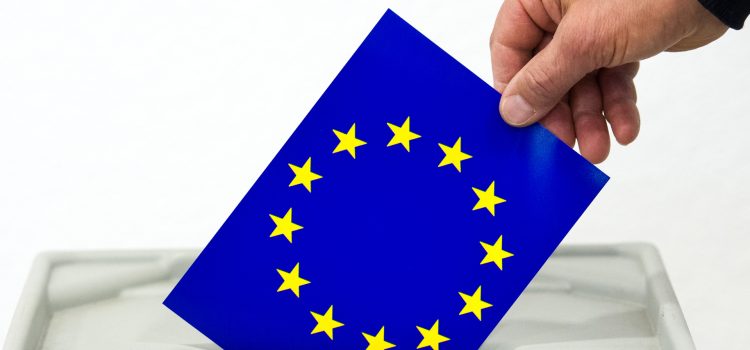
Over four days beginning late last week, voters in 27 countries, from Portugal to Poland and Belgium to Bulgaria, cast their ballots to elect the 720 members of the European Parliament. This legislative body of the European Union (EU) now faces a reshaped political landscape, reflecting shifts in voter sentiment across the continent.
Election Results and Political Shifts
Right-Wing Gains
Several right-wing parties made significant gains in these elections. In Germany, the far-right Alternative for Germany party achieved a record performance. Similarly, in France, the anti-immigration National Rally party’s blowout victory prompted French President Emmanuel Macron to dissolve the National Assembly and call for a snap national election.
Centrist Dominance and Green Party Losses

Despite losses, centrist parties managed to retain a majority in the European Parliament. The three main pro-European centrist groups – the center-right European People’s Party, the center-left Renew Europe, and the Progressive Alliance of Socialists and Democrats – collectively secured over 400 seats, ensuring their continued dominance. Conversely, Green parties experienced notable setbacks, indicating a shift away from their previously strong position.
Implications for European Policy
Foreign Policy and Support for Ukraine
The centrists’ victory suggests a continuation of the EU’s current foreign policy stance, particularly strong support for Ukraine amidst ongoing conflict. Ursula von der Leyen, the current president of the European Parliament Commission, is likely to secure a second term, reinforcing this continuity. Von der Leyen’s administration is expected to maintain robust economic and trade policies aligned with U.S. interests, including a firm stance against Chinese influence.
Economic and Trade Policies
The election results signal a probable alignment of EU trade policies with those of the United States. Following President Biden’s imposition of tariffs on Chinese electric vehicles and batteries, Europe is anticipated to announce similar measures soon. This alignment is seen as a strategic move to counter Chinese economic power, particularly in the automotive sector.
Broader Political Climate and Transatlantic Relations

Stability Amidst Challenges
Despite the rise of far-right parties, the overall stability of the European political landscape remains intact. According to Liana Fix, a fellow for Europe at the Council on Foreign Relations, the centrists’ control suggests that Europe will continue to be a stable partner for the United States. This stability is crucial as both continents navigate political and economic challenges, including the war in Ukraine and global economic pressures.
Echoes of American Discontent
The European elections revealed significant discontent, mirroring some aspects of the political climate in the United States. Anti-immigrant sentiment, economic dissatisfaction, and concerns about Russian and Chinese aggression are prevalent in both regions. These shared challenges highlight the interconnectedness of Western democracies in addressing contemporary global issues.
Future Political Signals
Macron’s Snap Election Gamble
In less than three weeks, the results of President Macron’s snap election will provide further insight into the political direction of France and its implications for European unity. A victory for the far-right could undermine support for Ukraine, NATO, and the broader U.S.-Europe alliance.
The U.S. Presidential Election
The upcoming U.S. presidential election in November represents a critical juncture for transatlantic relations. A second term for President Biden would likely reinforce stability and continuity in U.S.-Europe relations. In contrast, a victory by former President Donald Trump could introduce significant uncertainty regarding American support for Ukraine and the future of NATO.
Conclusion
The recent European Parliament elections underscore the continent’s evolving political dynamics. While right-wing parties have gained ground, centrists remain dominant, ensuring policy continuity on key issues such as foreign relations and economic strategy. As Europe and the United States face parallel challenges, the outcomes of upcoming elections in both regions will be pivotal in shaping their future relationship and addressing global issues. Centrists retained a majority, ensuring policy continuity on foreign relations and trade. The results signal potential impacts on transatlantic relations and upcoming national elections in France and the U.S.










